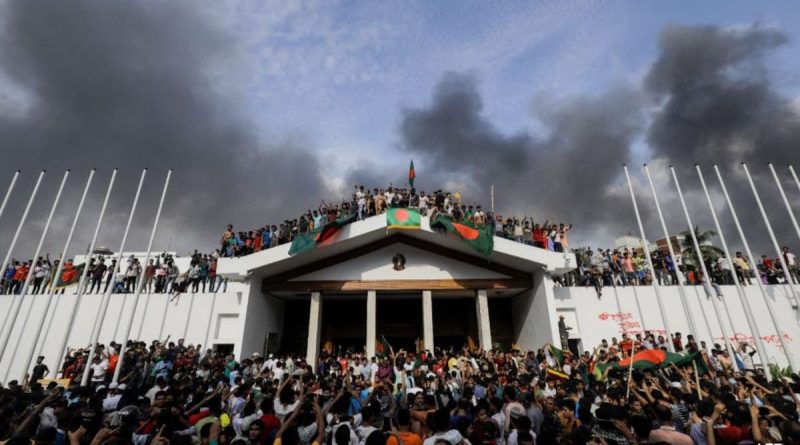NDTV Interviews Sheikh Hasina’s Son
“I had a conversation with her this morning. The condition in Bangladesh, as evident, is chaos. She is in good spirits but she is very disheartened. It’s very discouraging for her because it was her aspiration to transform Bangladesh into a developed nation and she toiled diligently for it over the past 15 years, safeguarding it from extremists and also from terrorism and despite all of that this outspoken minority, the opposition, the extremists have now taken control,” he expressed.
Her departure occurred less than seven months after she celebrated a fourth consecutive term in power – and fifth overall – by sweeping national elections in January.
Her son, however, mentioned he did not discuss with her where she is headed next.
Her previous 15 years in power were characterized by arrests of opposition leaders, crackdowns on freedom of speech and suppression of disagreement, and she stepped down in the face of deadly student-led protests that have resulted in the deaths of hundreds.
Demonstrations started in June after demands from student groups to eliminate a controversial quota system in government jobs escalated into a movement aiming for the end of her leadership.
“We anticipate that there will be elections in Bangladesh but at this moment with our party leaders being targeted I don’t see how open and just elections would be possible. In a sense, it is no longer the family’s duty. We have demonstrated what we can accomplish. We have shown how much we can advance Bangladesh and if the people of Bangladesh aren’t willing to take a stand and they are ready to let this violent minority take control then people get the leadership they deserve,” said his son.
Pushed to reply if his mother did the best for the country, he stated, “Absolutely. Awami League still remains the most favored party in the nation. BNP has the opportunity to return to power and we have witnessed what they were like the last time. They ran the country into the ground. The extremists had a free hand; they attacked the minorities with impunity.”
Bangladeshi President Mohammed Shahabuddin ordered the liberation of imprisoned former prime minister and crucial opposition figure Khaleda Zia, hours after her long-standing rival Sheikh Hasina was overthrown and the military assumed control.
Bangladesh’s army chief General Waker-Uz-Zaman stated in a broadcast to the nation on state television that Hasina had resigned and the military would establish an interim government.
“The nation has endured a lot, the economy has been impacted, numerous individuals have been killed — it is time to halt the violence,” remarked Waker, shortly after cheerful crowds stormed and looted Hasina’s official residence.
Bangladesh’s Channel 24 broadcast footage of crowds rushing into the prime minister’s compound, smiling and waving at the camera, looting furniture and books, or lounging on beds.
The military announced it would lift a curfew imposed to suppress protests at daybreak Tuesday.
“I doubt the army will be able to normalize things that quickly. Because currently what is happening is that the opposition and the extremists, they are not just vandalizing, they are also pursuing our leaders, former ministers and even reportedly minorities. I don’t believe the violence has ceased,” mentioned Mr. Joy.
Mobs pillaged and tore apart the residences of Hasina’s Awami League party allies as well as police stations, witnesses conveyed to news agency AFP.
Crowds demolished statues of her father Sheikh Mujibur Rahman, the nation’s liberation hero, and set fire to a museum dedicated to him.
“The sentiment is one of letdown, fury, that my grandfather liberated the nation and they assassinated him and my entire family. And now the same forces, these are the minorities that opposed the independence of Bangladesh, are exploiting this opportunity to essentially deny and obliterate our hard-won struggle for freedom. And it’s very disheartening to see that the majority of Bangladesh is remaining silent,” remarked Mr. Joy.
The South Asian country has a lengthy history of coups.
The military proclaimed a state of emergency in January 2007 after widespread political unrest and installed a military-backed interim government for two years.
Waiting for response to load…

